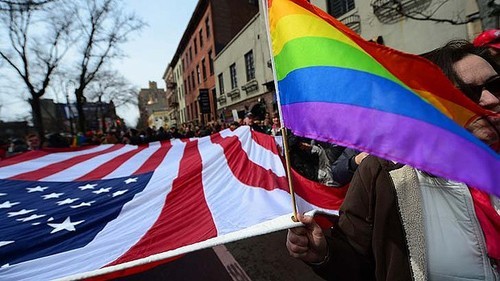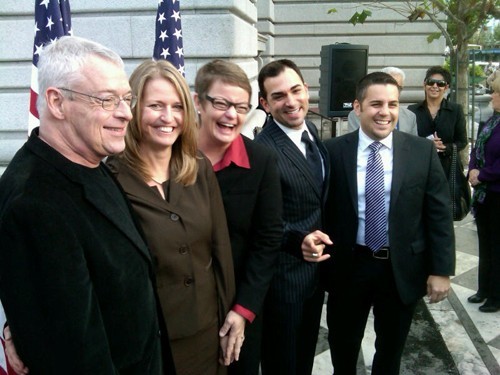Author: Robert Barnes
Publication: The Sydney Morning Herald
Publication Date: March 26, 2013
With an overwhelming majority of state laws pointing one way and public opinion trending rapidly in the other, the Supreme Court may enter this week’s historic arguments over same-sex marriage preferring caution over boldness.
Two cases offer the justices an unusually wide range of options – Tuesday’s involves California’s ban on such unions, Wednesday’s concerns Congress’s decision to withhold federal recognition of state married same-sex couples.
A broad constitutional ruling is possible, but so is a finding that the cases are not yet ripe for decision. The court’s first full examination of whether the right to marry must be extended to same-sex couples puts on full display the justices’ official responsibility as arbiters of the constitution, as well as their unofficial role as interpreter of the nation’s readiness for social change.

Proponents of same-sex marriage say conditions could not be better for the issue to reach the nation’s highest court.
Advertisement
”Everything seems to be breaking in support of marriage equality,” said Theodore Boutrous, a lawyer for two couples challenging California’s gay marriage ban.
He pointed to the growing number of states that now authorised same-sex marriage, shifting stances of political leaders and polls that show a majority of Americans now favour a concept of marriage that did not exist anywhere in the world until recent years.
Other supporters are nervous about recent comments from Justice Anthony Kennedy, who wrote the court’s two most important rulings in favour of gay rights and who will almost certainly be crucial in the marriage cases.
He has said he did not find it ideal that the court was at the centre of so many important questions on social issues and civil rights. ”A democracy should not be dependent for its major decisions on what nine unelected people from a narrow legal background have to say,” Justice Kennedy said.
Indeed, the low-key court briefs filed by those opposing same-sex marriage seem to acknowledge the political victories of same-sex marriage proponents and the country’s rapidly changing mood.
But they are cited as reasons that the court is unneeded. ”With an issue as fast-moving and divisive as same-sex marriage, the advantages of the political process are substantial,” wrote Paul Clement, representing Republican House leaders in their defence of Congress’s 1996 decision denying recognition to same-sex marriages performed in the states.

